Sperm Donor Makes Shocking Discovery: ‘I’m the Biological Father of 97 Kids’ — and Likely More (Exclusive)
Dylan Stone-Miller became a sperm donor while he was a college student at Georgia State University in 2011
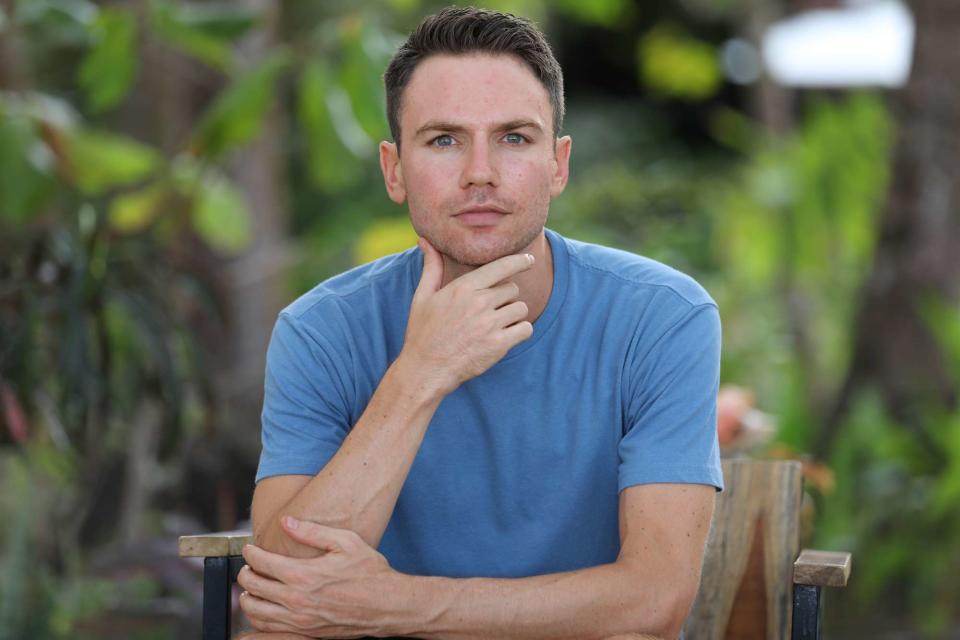
Elicia Miller Photography
Dylan Stone-Miller.Back in 2020, just minutes into his new job at a software engineering firm in Atlanta, Dylan Stone-Miller read a direct message on Instagram that left him stunned.
A woman who had conceived a daughter with the sperm he first donated to a sperm bank nine years earlier while attending college had managed to track him down —and wanted to thank him.
Soon Stone-Miller found himself clicking through the woman’s Instagram profile, staring at hundreds of photos of his biological daughter.
“Seeing this little girl’s beautiful face just filled me with so much joy, love and gratitude,” he recalls. “I had to fight to hold back the tears.”
Never miss a story — sign up for PEOPLE's free daily newsletter to stay up-to-date on the best of what PEOPLE has to offer, from celebrity news to compelling human interest stories.

Courtesy Dylan Stone-Miller
In the months that followed, Stone-Miller began hearing from dozens of parents — all of whom welcomed children with his sperm. Using his donor number, they had found their way to one another online and formed a Facebook group to stay in touch.
At last count Stone-Miller estimates that he has at least 97 biological children in six countries — but says the true number could be more than 250. The revelation altered the trajectory of his life and eventually inspired him to become a passionate advocate for donors and families.
Now he’s calling for legal limits on the number of pregnancies that result from one sperm donor, as well as changes to the ways that the multibillion-dollar industry treats people like him and recipient families.
“As soon as I saw the face of this little girl who looked just like me, there was no going back,” says Stone-Miller, who spent four months last year driving across the nation meeting some of his biological children. “I knew it was going to be important to show up in whatever ways she and her family, along with all the other families, wanted me to.”
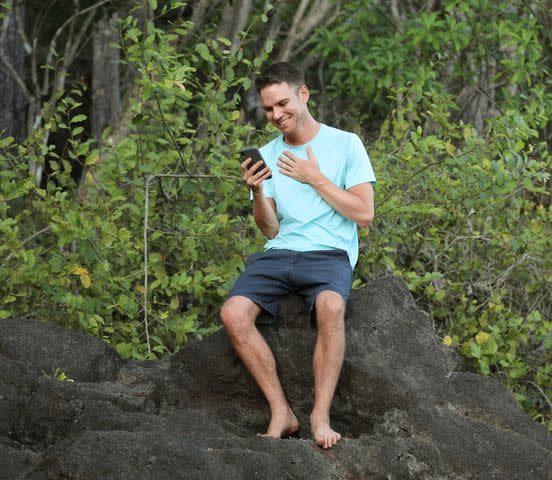
Elicia Miller Photography
The idea of becoming a donor came from Stone-Miller’s roommate at Georgia State University in 2011. Before long he was earning $100 per donation at Atlanta-based sperm bank Xytex, which caters to clients around the world.
“Ultimately my motivation was financial, to help pay for bills and tuition as a broke student,” says Stone-Miller, who calculates he made some 400 donations between the ages of 20 and 25, leading to about $40,000 of income.
Sperm donation limits are not nationally regulated, but Stone-Miller says, “I was informed [at Xytex] that the limit was 40 families, and, at the time, I thought there was no way I would reach
that.” (Xytex has not responded to People’s request for comment.)
Still, Stone-Miller, who is divorced, was perplexed when that first mother made contact. “One of the reasons why I agreed to donate originally,” he says, “was because I signed something saying that the sperm bank would protect my identity until the children turned 18.”
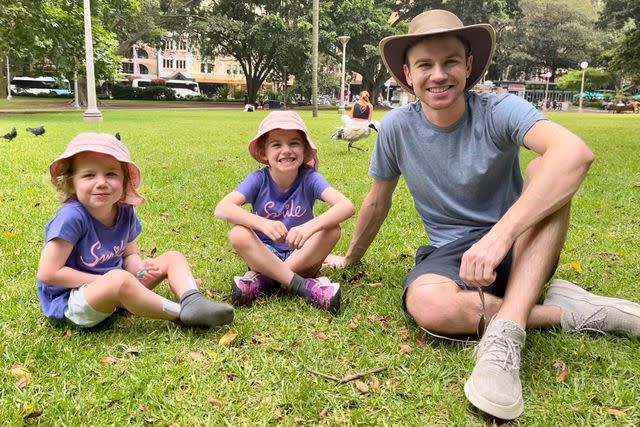
Courtesy Dylan Stone-Miller
But it turned out that the families tracked him down through basic information to which they had access, including his first name, hometown and parents’ occupations — “things that could be used to triangulate” his identity in online searches, he says.
When Stone-Miller began meeting other parents online and became aware of his ever-increasing number of offspring, he was in disbelief. “Right now I know of at least 62 families,” he says, noting that some of them have had multiple children using his sperm. “But typically only about 40 percent of recipient parents report their birth back to the sperm bank, so I anticipate there being around 150 families and more than 250 children.”
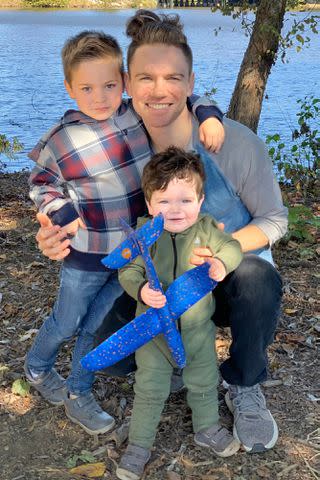
Courtesy Dylan Stone-Miller
Soon Stone-Miller — who had spent years helping to raise his ex-wife’s son — decided that he owed it to his biological children to meet them before they turned 18 if the parties were interested. “I know how inquisitive children are and how important it is to answer their questions, especially ones about where they came from,” he says.
Starting in 2021 he began meeting one after another. (He thinks the oldest of his kids would now be 12.) By the time he decided to take a sabbatical from his computer programming job and embark on his cross-country road trip last May, he had gotten to know 18 of them.
The number now stands at 26. The parents and children first connect with him online, “and then we figure out if we want to meet in person,” he says. “It’s not like strangers meeting. It’s like online friends becoming friends with a mutual lifelong commitment.”
The most heart-wrenching part, he insists, is when it comes time to leave. “It’s very difficult for me to say goodbye to the kids, knowing it’s the last time I’m going to see them at that age,” he says. “I cherish the memories I’m able to create with them. There are a lot of tears and conversations about when they’re going to see me again.”
Says one of his biological children, a 6-year-old boy whom Stone-Miller has been visiting for the past three years: “I call him Donor Dylan, and I can’t wait to see him when he visits. I like playing baseball with him, going to Target and just playing together. He makes me laugh.”
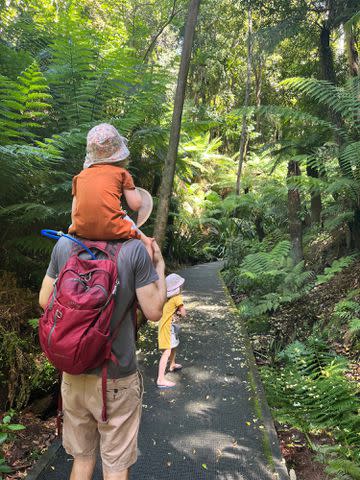
Courtesy Dylan Stone-Miller
For Stone-Miller — who is currently based in Washington State and works remotely for a non-profit that he’s launching to help sperm donors and recipients navigate challenges — the days ahead will be filled with more meetings with his biological children, including a second trip to Australia, where at least five of them live.
He recently learned that his youngest was born four months ago. “The sperm bank tells me that they’ve retired me,” says Stone-Miller, “but there is no legal requirement in the U.S. for them to stop distributing my donated sperm.”
Asked whether he hopes to someday start a family himself, Stone-Miller thinks it may be irresponsible. “At one point in time I really wanted to raise children of my own,” he says. “But I don’t think it would be ethical for me to bring more children into the world. For now I’m seeing if I'm fulfilled enough by the connections I have.”
For more People news, make sure to sign up for our newsletter!
Read the original article on People.

